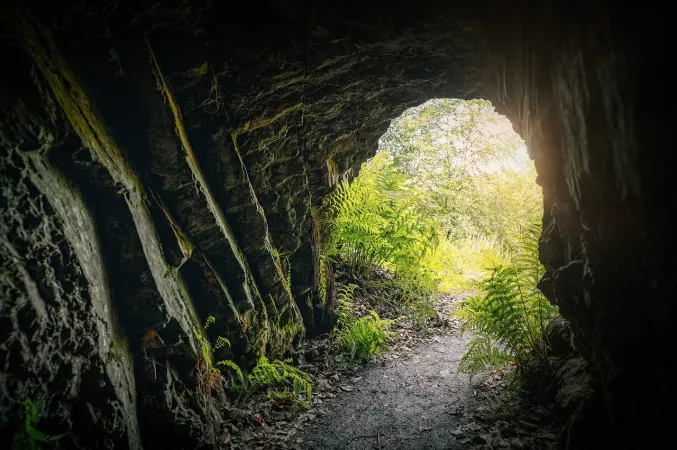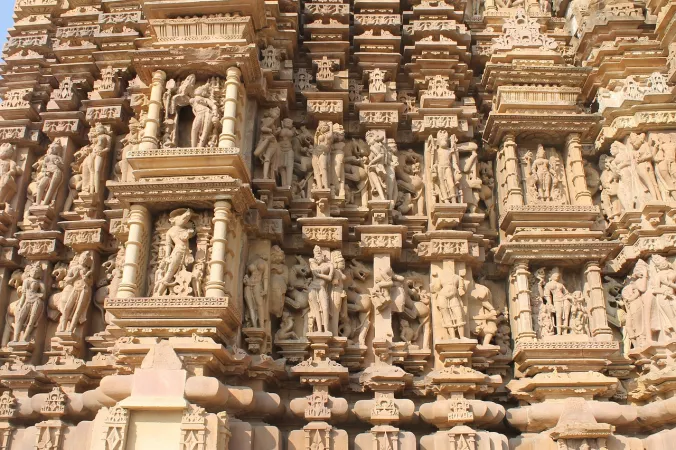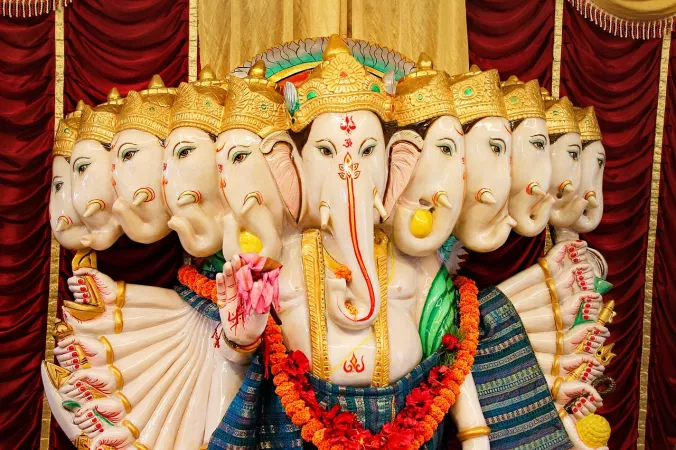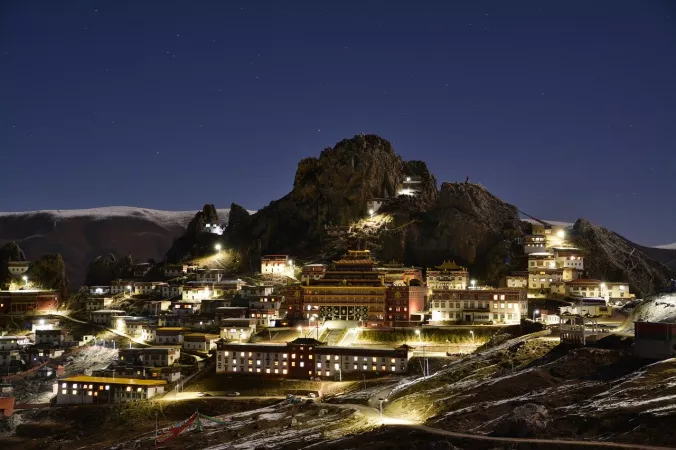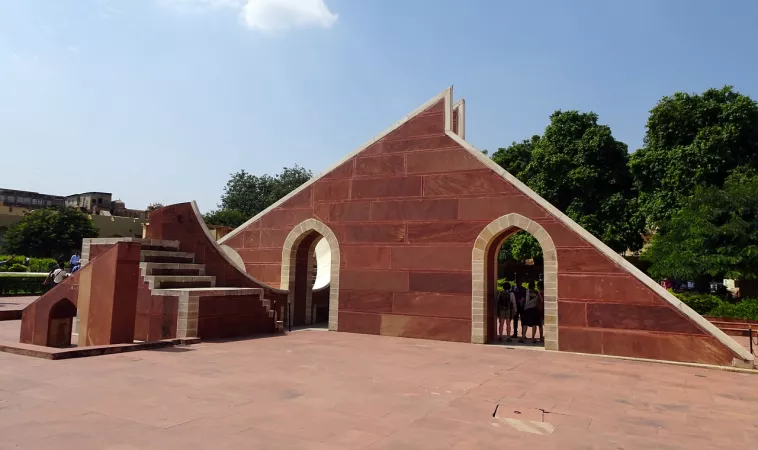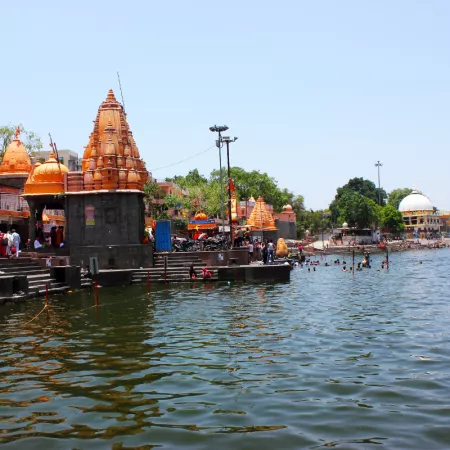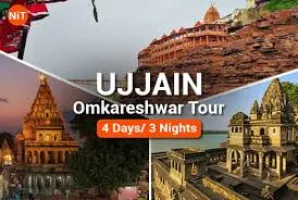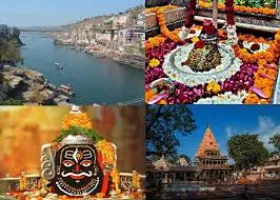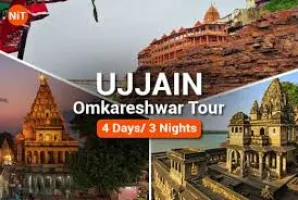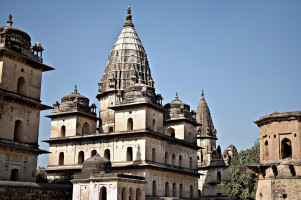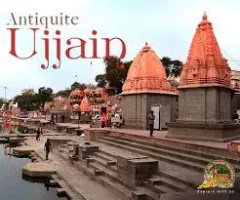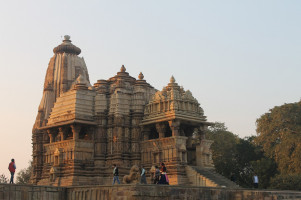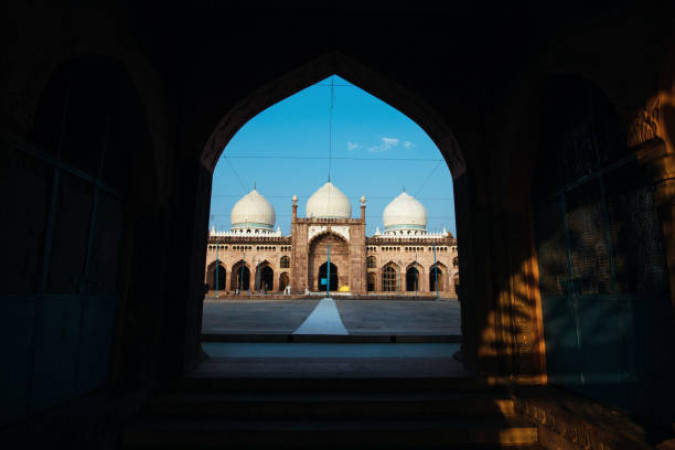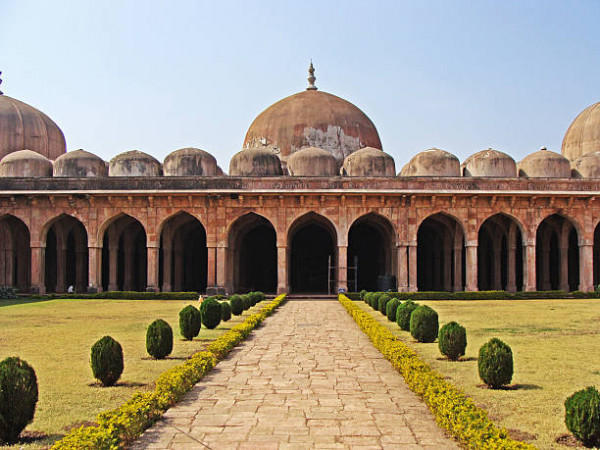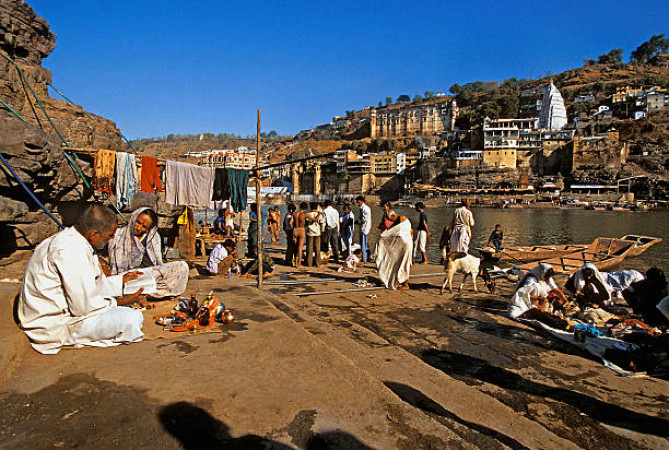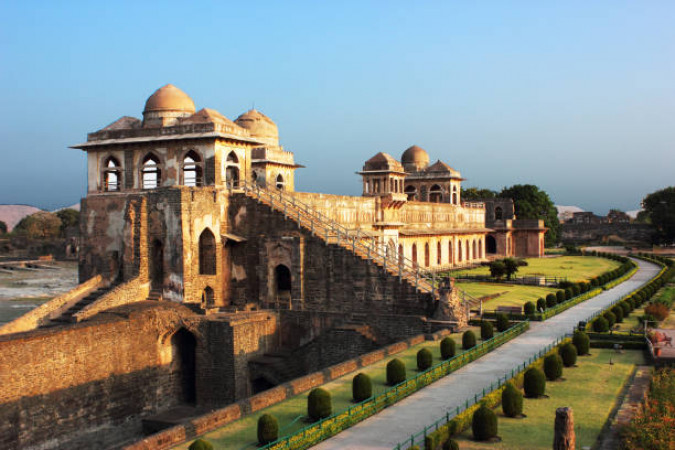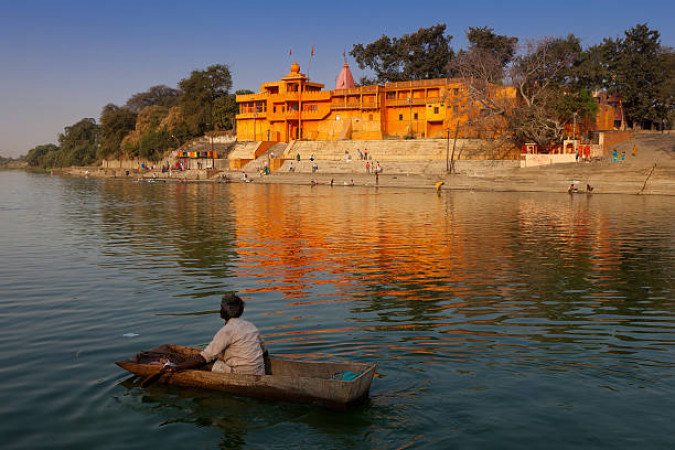
Ujjain
Duration
2 to 4 Days
2 to 4 Days
Best time to visit
Oct-Mar
Oct-Mar
Theme
Religious, Heritage
Religious, Heritage
Ujjain Travel Guide
Ujjain, a city in the state of Madhya Pradesh, India, holds immense historical and cultural significance. Known as one of the seven sacred cities for Hindus, Ujjain is famous for its temples, spirituality, and the Kumbh Mela festival. Situated on the banks of the Shipra River, Ujjain boasts a rich history dating back to ancient times, making it a popular pilgrimage destination for devotees.Top Attractions in Ujjain
- 1. Mahakaleshwar Temple
- 2. Kal Bhairav Temple
- 3. Kumbh Mela
- 4. Ram Ghat
- 5. Sandipani Ashram
Ujjain is Famous for
Spiritual significance and hosting the Kumbh Mela.Top Attractions in Ujjain
- 1. Mahakaleshwar Temple
- 2. Kal Bhairav Temple
- 3. Kumbh Mela
- 4. Ram Ghat
- 5. Sandipani Ashram
What's Great about Travelling to Ujjain?
- 1. Spiritual and cultural experience
- 2. Ideal for history enthusiasts
- 3. Peaceful and serene atmosphere
What's Not So Great about Travelling to Ujjain?
- 1. Limited nightlife and entertainment options
- 2. May not be suitable for those seeking a modern city experience
- 3. Can be crowded during religious festivals
Travel Tips for Ujjain
- 1. Respect local customs and traditions
- 2. Carry cash as not all places accept cards
- 3. Dress modestly when visiting temples
Important Ujjain trip information
- Ideal Duration: 2-3 days
- Best Time to Visit: October to March
- Nearby Airports and Railway Stations: Devi Ahilya Bai Holkar Airport, Ujjain Junction
Top 13 Places to visit in Ujjain
Per Person
7,500
*EXCLUDING APPLICABLE TAXES 4.8 Ratings
( 30 Reviews )
( 30 Reviews )
Total
24,000
*EXCLUDING APPLICABLE TAXES 5.0 Ratings
( 27 Reviews )
( 27 Reviews )
Per Person
8,800
*EXCLUDING APPLICABLE TAXES 4.8 Ratings
( 30 Reviews )
( 30 Reviews )
Per Person
13,000
*EXCLUDING APPLICABLE TAXES 4.4 Ratings
( 302 Reviews )
( 302 Reviews )
Per Person
11,000
*EXCLUDING APPLICABLE TAXES 5.0 Ratings
( 61 Reviews )
( 61 Reviews )
Per Person
11,500
*EXCLUDING APPLICABLE TAXES 5.0 Ratings
( 13 Reviews )
( 13 Reviews )
FAQ's on Ujjain
Q1: What is the best time to visit Ujjain?
is best visited between October and March when the weather is pleasant and ideal for exploring the city's attractions. This period also coincides with the famous festivals like the Kumbh Mela and Mahashivratri, adding to the cultural experience.
Q2: Do I need a visa to travel to Ujjain?
Most tourists visiting do not require a visa if they hold an Indian passport. However, international travelers should check the specific visa requirements based on their nationality before planning their trip.
Q3: What are the must-visit attractions in Ujjain?
Ujjain is known for its historical and religious significance. Must-visit attractions include the Mahakaleshwar Temple, Kal Bhairav Temple, Ram Ghat, Kumbh Mela, and the Vedh Shala (Observatory).
Q4: Is Ujjain a safe place to travel?
Generally, is considered safe for travelers. However, it is advisable to be cautious in crowded areas and take necessary precautions to safeguard your belongings. Avoid isolated areas at night.
Q5: What is the local currency in Ujjain and can I use credit cards?
The local currency in is the Indian Rupee (INR). While credit cards are accepted in some hotels and restaurants, it is recommended to carry cash for transactions in local markets and smaller establishments.
Q6: What is the local cuisine like in Ujjain?
The cuisine of is predominantly vegetarian and offers a variety of traditional dishes like Poha, Bhutte ki Kees, and Daal Bafla. Visitors can also enjoy sweets like Jalebi and Malpua.
Q7: What transportation options are available in Ujjain?
Transportation options in include auto-rickshaws, cycle rickshaws, taxis, and buses. Visitors can also rent cars for convenient travel within the city and to nearby attractions.
Q8: Are there any cultural norms or etiquette I should be aware of when visiting Ujjain?
When visiting , it is important to respect local customs such as removing footwear before entering temples, dressing modestly, and seeking permission before taking photographs of people or religious sites.
Q9: I am a travel agent. How can I buy travel leads of Ujjain?
Register yourself as a travel agent at agents.tripclap.com and then you can buy travel leads to Ujjain once your account is approved. For more details contact our support team at +91-8069186564 or support@tripclap.com
